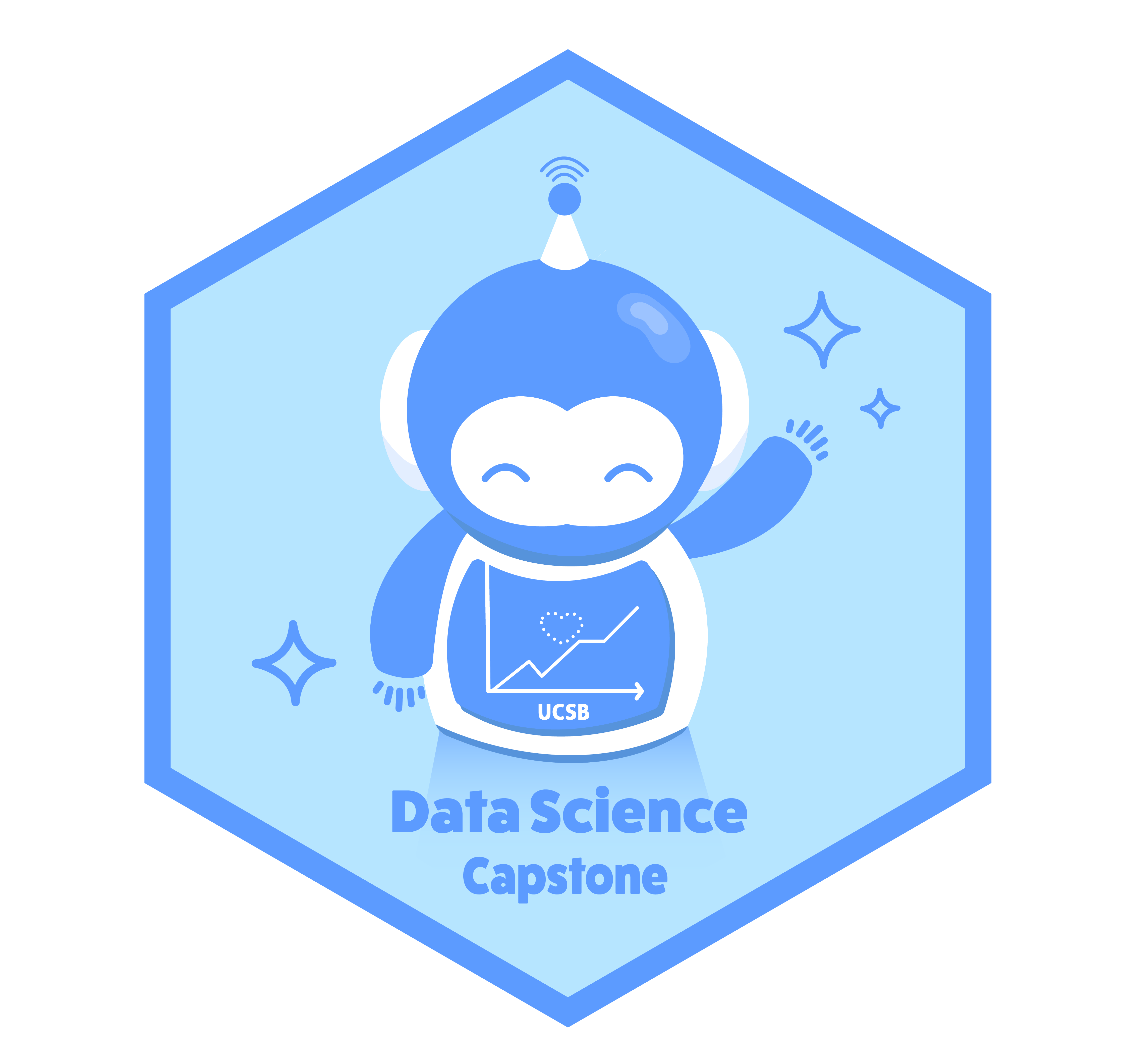Propose a project
We are considering projects for the 2025-2026 academic year on a rolling basis through November 1, 2025. The process for proposing a project is as follows:
- Provide a short pitch by filling out our [interest form].
- If your project seems like a good fit, we will contact you to request a project abstract.
- The lead capstone instructor, Dr. Coburn, will review your abstract and either accept the project, propose revisions, or decline the project.
- Project abstracts must be finalized by November 15, 2025 for distribution to students to solicit student preferences regarding team assignments.
We are happy to provide consultations at any point in this process. Please see the people page for current program contacts.
Why participate?
Data science capstone projects at UCSB are, above all, about creating educational and professional opportunities for students. We want to work with project mentors who share our commitment to student learning.
Participation can benefit mentors by providing pilot research or advancing existing projects, and can also provide opportunities to form new partnerships and collaborations and potentially recruit talent.
Tips for success
We have found that successful projects include students in making novel contributions to a broader research agenda based on concrete starting points. In other words, projects tend to be productive when there is a clear focus and purpose. In our view, mutually beneficial success is most likely when mentors:
are invested in students’ intellectual and professional development;
have identified a well-defined data science problem of clear value to their agenda or organization;
can provide initial work (analysis, codes, relevant literature) and hands-on direction and training to students at the beginning of the project to facilitate a quick start.
Projects tend to be less productive in the absence of very specific direction and engagement on the part of the mentor at the outset of the project – this often results in protracted exploratory analyses lacking focus. Typically, given the proper initial support, students are able to make ongoing progress with a fair degree of autonomy after a few weeks.
Timeline
Project work takes place in Winter and Spring quarters each year. As such, we follow this approximate timeline:
June – October: project recruitment for upcoming year
October – November: development of project plans in collaboration with sponsors
December: assignment of students and a faculty or graduate student advisor to the project
January: project work begins
June: project work concludes with poster showcase on UCSB’s campus
The general expectation is that datasets are in hand by the time project work begins. However, in some cases, projects may start with pilot data.
Logistics
Project mentors should be able to provide:
project objectives and datasets;
at least one representative who is available to meet for one hour weekly or biweekly with the project team (virtual meetings are fine) during the working period (January – June);
(non-academic advisors only:) a mandatory participation fee of $1,500 to support the project showcase and prizes for best projects
Note that it is possible for project mentors to participate entirely online, and mentors can choose to meet with students either on Zoom or equivalent, or in person. We welcome both local and long-distance mentors to participate in the capstone.
UCSB provides:
consultation on project plan development;
at least one faculty or graduate student advisor to join project meetings and assist students in meeting project goals;
student research team matched to the project based on interests and skills;
meeting space and research computing resources.
Disclosure agreements
Mentors may wish to establish disclosure agreements covering the scope of project work. Typically such agreements pertain to data and information provided by the project mentor for educational purposes, and are entered into by the university with the support of capstone program staff. Any such agreements are binding on students and faculty as university representatives.
In the 2025-2026 academic year, we will be providing a standard nondisclosure agreement on request. We are happy to consider modifications to the standard agreement provided they are not overly restrictive – students will need to discuss their work with the class and prepare a public poster presentation in order to earn university credit. It should be noted that the university cannot enter into agreements pertaining to ownership of project deliverables – students retain rights to work that they produce for academic credit.
